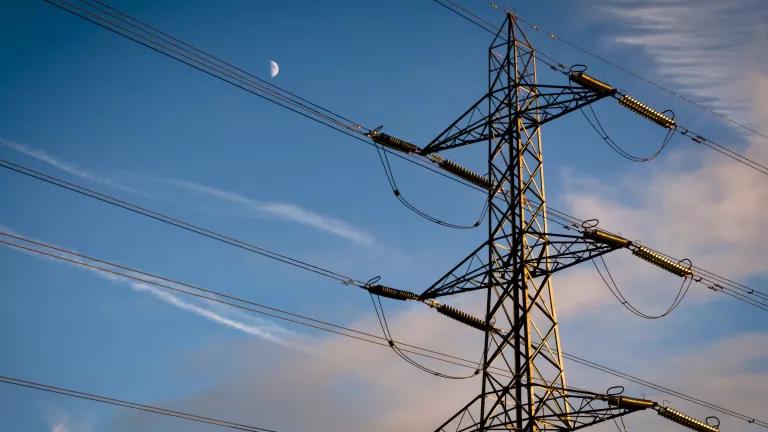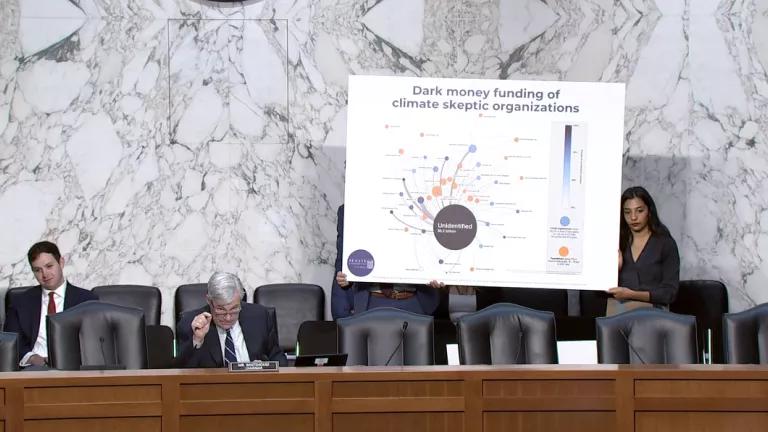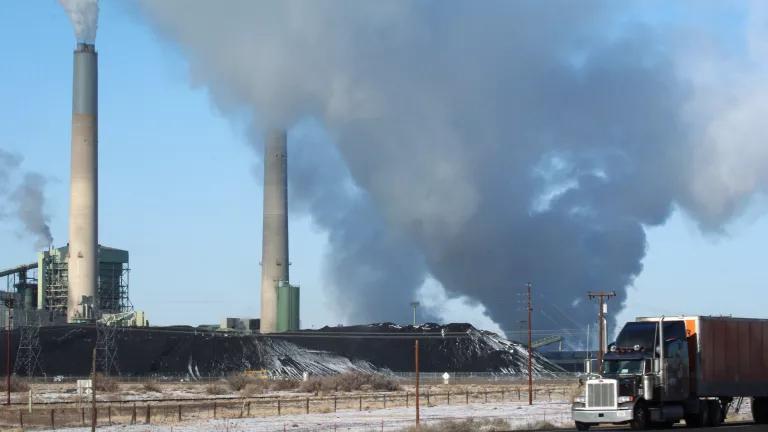The State Department issued an recklessly insufficient environmental review of the Keystone XL tar sands oil pipeline on Friday. Despite the President’s tough talk on confronting climate change, the State Department shrugged off the climate consequences of a pipeline that would drive the expansion of tar sands development.
Producing tar sands oil generates three times as much greenhouse gas pollution as regular crude. Building the Keystone XL tar sands pipeline would create the same carbon pollution as adding 5 million new cars to the road. It would also allow oil companies to export tar sands from the Gulf of Mexico and give them the incentive to dramatically increase tar sands production—and the carbon pollution that goes with it.
Downplaying the climate implications of this added pollution is like ignoring the increased odds of getting lung cancer from smoking more cigarettes.
The State Department’s review acknowledges that tar sands oil is a greater climate threat than conventional crude. Yet it fails to conclude that makes Keystone XL is a climate threat as well. “Approval or denial of the proposed project is unlikely to have a substantial impact on the rate of development in the oil sands,” the review claims.
To reach that conclusion, the State Department had to ignore a host of oil industy executives, financial analysts, and Canadian officials who say the future of tar sands oil development hinges on the Keystone XL pipeline.

40,000 gathered at the White House for the Forward on Climate Rally, February, 2013.
Standard & Poor’s, for instance, recently reported that delays in approving new pipelines are putting future tar sands production growth at risk. “Unless we get increased [market] access, like with Keystone XL, we’re going to be stuck,” explained Ralph Glass, an economist and vice president at AJM Petroleum Consultants.
Oil companies can’t simply choose another route if Keystone XL gets blocked, because no other viable alternatives exist right now. CIBC, a major Canadian financial services firm, recently estimated the pipelines proposals for hauling tar sands oil to Canada’s West Coast have a less than 50 percent chance of being built. The Northern Gateway pipeline to the British Columbia Coast, for instance, is highly unpopular in the province, where 60 percent of residents oppose the project and aboriginal communities have refused to grant necessary easements.
The truth is the future of the tar sands industry rests on the Keystone XL pipeline. If President Obama rejects this pipeline, he can keep the dirtiest fuel on the planet where it belongs: in the ground. But if he allows it to go forward, he will be locking us in to decades of increased carbon pollution and climate disruption.
Our communities can’t afford more of this disruption. Just ask the people of New York, New Jersey, and Connecticut who need $80 billion to recover from Superstorm Sandy. Ask the corn and soybean farmers who lost between 20 percent and 100 percent of their yields last summer during the worst drought in decades. Or ask the children who suffered asthma attacks or the seniors who were hospitalized with respiratory problems during the hottest July on record.
America should be reducing the pollution contributing to these health and economic challenges, not opening the floodgates.
Fortunately, the State Department’s review is still in draft form. People can send comments and make our voices heard. We can call on the administration to acknowledge the outsized role Keystone XL plays in the future of the tar sands industry. And we can demand that the next review examine the full climate implications of the pipeline, the added burden of cleaning up tar sands oil spills, and the health concerns for people living near tar sands oil refineries.
The stakes are so high in the fight against climate change—our homes and communities stand to lose the most. The American people deserve nothing less than a full accounting of a massive dirty fuels project. And then we expect the President to reject that project and move forward toward climate stability.



